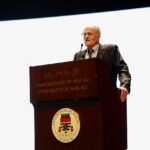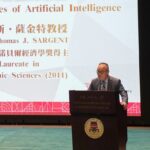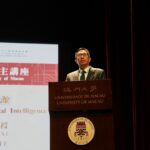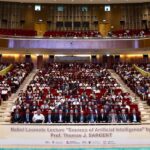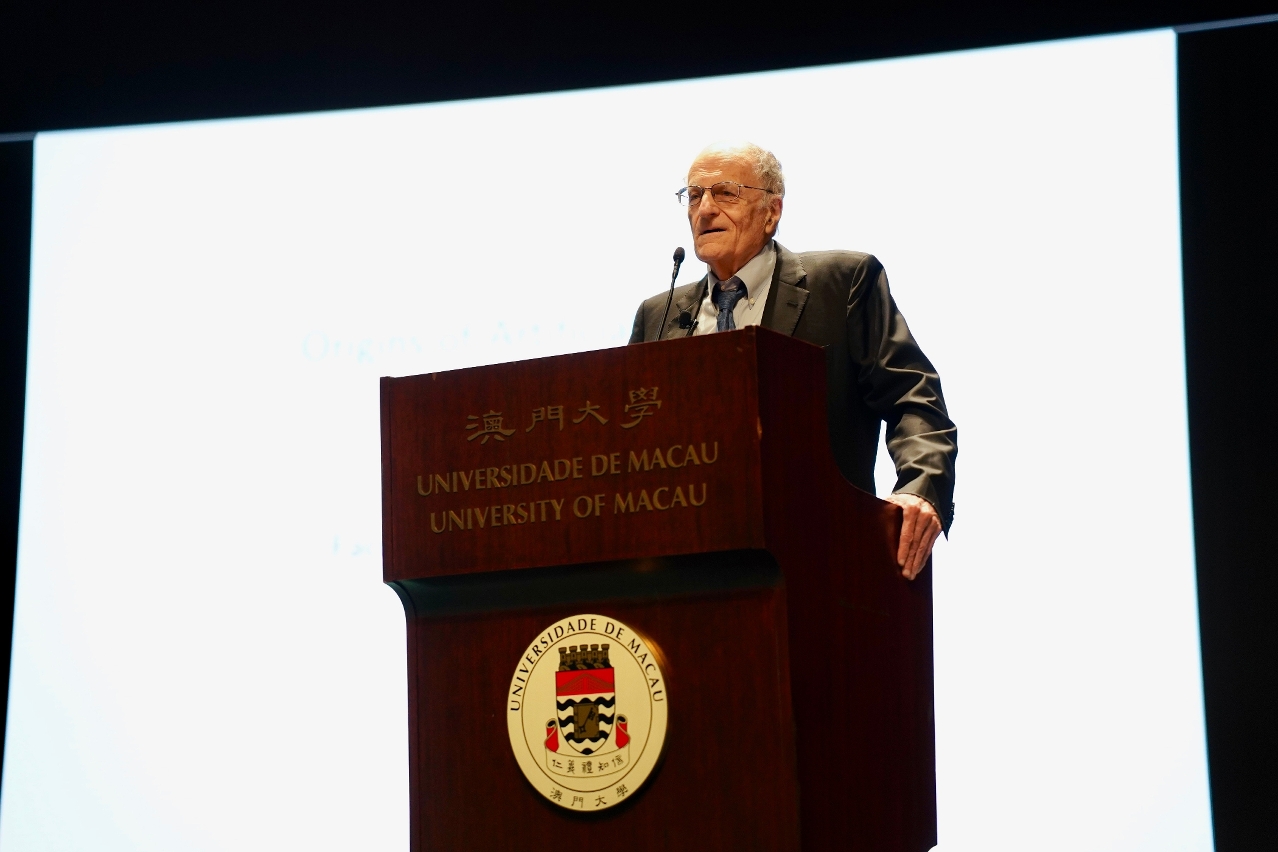 Thomas Sargent
Thomas Sargent
The Faculty of Business Administration (FBA) of the University of Macau (UM) held the Nobel Laureate Lecture today (5 November), featuring Thomas Sargent, Nobel laureate in economic sciences. Prof Sargent gave a talk titled ‘Sources of Artificial Intelligence’ and talked about the sources and development of artificial intelligence (AI). The talk was sponsored by the University of Macau Development Foundation (UMDF). It was well attended by UM students and faculty, industry practitioners, prominent members of the community, as well as members of the public.
Speaking at the event, UM Rector Yonghua Song said that Prof Sargent was awarded the Nobel Prize in Economics in 2011 for his ‘empirical research on cause and effect in the macroeconomy’. He is a renowned expert in fiscal, monetary, and political policy, and is one of the founders of the rational expectations model and the freshwater economics movement. The core concept of rational expectations is that individuals make decisions based on rational economic psychological models and their understanding of government economic policies. This means that whenever the government changes its policies, consumers and investors adjust their behaviours accordingly, often making it difficult for the policies to achieve their intended effects. This insight fundamentally revolutionised economics in the post-Keynesian era and continues to dominate economic thought today.
Yu Jun, dean of the Faculty of Business Administration (FBA), said that Prof Sargent’s lecture not only deepened the understanding of AI but also provided valuable insights for future research. He added that in an era where technology and data-driven approaches are reshaping the world, understanding the principles and applications of AI is crucial. Macao, a vibrant and innovative city, will greatly benefit from these advancements.
During the talk, Prof Sargent discussed the sources and development of AI. He introduced the basic elements of human intelligence, including pattern recognition and decision-making processes, and highlighted the cognitive abilities of intelligent individuals regarding time and space, as well as their empathy and compassion for others. Prof Sargent also discussed the transformative impact and challenges brought by AI in today’s society, particularly its impact on various industries, and shared his views on future trends. In particular, he mentioned the critical role of statistics, biology, economics, and physics in the development of AI, and provided specific examples to illustrate how these disciplines help people better understand and apply AI technologies. Prof Sargent also engaged with the audience in the Q&A and discussion sessions moderated by Prof Yu.
Guests attending the talk also included: Lam Kam Seng Peter, chair of the University Council of UM and chair of the Trustees Committee of UMDF; Cheong Chok Man, director of the Policy Research and Regional Development Bureau of the Macao SAR Government; Che Weng Keong, president of the Administrative Committee of the Science and Technology Development Fund of Macao; Chui Sai Peng, member of the University Council of UM; Daniel Tse, vice chair of the Trustees Committee of UMDF; Garrick Wong, member of the Trustees Committee of UMDF; Stanley Au, chairman of Delta Asia Financial Group; and Rui Martins, Ge Wei, and Mok Kai Meng, vice rectors of UM. Members of the FBA Advisory Board, including Linda Chen, president, vice chairman, and executive director of Wynn Macau, Limited; Akiko Takahashi, executive vice president and chief of staff to chairman and chief executive officer of Melco Resorts & Entertainment Limited; Zhan Yuyin, chairman of E Fund Management Co Ltd and chairman of E Fund International Holdings Co Ltd, also attended the talk.


